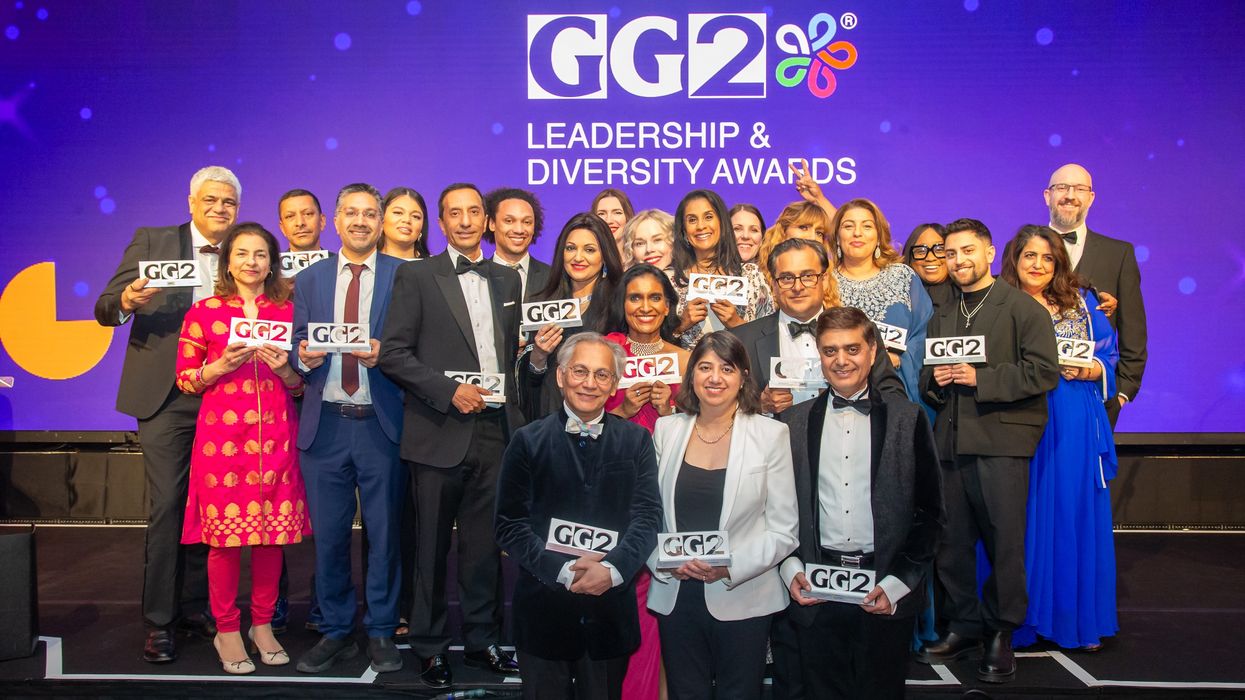GG2 Hammer award: Dr Samir Shah CBE, chair, BBC: The first person of colour to hold the powerful position, Dr Samir Shah as chair of the BBC is responsible for upholding the independence of the corporation and ensuring that it fulfils its mission to inform, educate and entertain.
India-born Shah, who was appointed to the fouryear term in March 2024, was previously CEO of Juniper, an independent television and radio production company.
He is an independent member of the Arts and Media honours committee and a member of the Overseas & International honours list committee.
Shah’s service to the industry was recognised with a CBE (for services to television and heritage) in the 2019 Queen’s birthday honours.
Man of the Year: Shabir Randeree, chairman, DCD London & Mutual plc
An immigrant from South Africa, Randeree heads the DCD Group, which is at the forefront of Islamic banking, and tech venture capital. Randeree also serves as chair of the King’s Trust International and is a trustee of Windsor Leadership.
In addition, he is a philanthropist and works with senior cabinet ministers and Buckingham Palace to help create a fairer and more equitable society.
Randeree was awarded a CBE in 2013 in recognition of his services to business, education and philanthropy. He holds two honorary doctorates and was chair of the Woolf Institute Cambridge, which works to improve relations between religion and society through education.
Woman of the Year: Seema Malhotra MP
Malhotra, who represents Feltham and Heston in the Commons, is parliamentary under secretary of state (minister for equalities) in the Department of Education and also the Home Office.
The Labour MP, who comes from a business family, grew up with her three siblings on top of a shop in west London. She first entered parliament in December 2011 following her victory in the Feltham and Heston by-election.
While her party was in opposition, Malhotra held a number of roles, including as shadow chief secretary to the Treasury from 2015 to 2016, and as shadow Home Office minister in 2015.
She also served as a member of the Justice select committee and the committee on the Future Relationship with the European Union select committee. She did her schooling in Hounslow and college education in Warwick and Aston universities.
Social Entrepreneur of the Year: Tharshiny Pankaj, joint CEO, Regent Group
A refugee who fled Sri Lanka during the ethnic conflict, Pankaj, along with her husband Dr Selva, runs the Regent Group, an education platform with offices in London, New York, Dubai and in India.
She has also supported projects to provide access to free education for underprivileged children and set up the Global Unity Forum to foster unity, reconciliation and forgiveness.
In addition, Pankaj runs Regent Global Learn platform that provides free access to high-quality learning to impoverished students in Sri Lanka. The couple have worked to foster unity and reconciliation between different communities.
Embrace award: Dr Aneela Bukhari, head of education, Ormiston Trust
Dr Bukhari heads the Ormiston Trust, a charity that has supported more than 50,000 young people, mostly from socially and economically disadvantaged backgrounds, across the UK.
Ormiston’s Youth Social Action programme helps young people tackle poverty, build crucial leadership skills and raise awareness of climate change, inclusion and diversity. In the past two years, Ormiston has engaged over 10,000 young men and women and provided them a greater sense of agency and belonging, and increasing their wellbeing and confidence.
Blossom award: The Healing Garden, Asian Women’s Resource Centre
For more than four decades, the Asian Women’s Resource Centre (AWRC) has provided support to women and children from black, Asian and minority ethnic backgrounds affected by domestic abuse, forced marriage, honour-based or faith-based abuse.
The centre’s new Healing Garden in Harlesden, London, was unveiled recently by Queen Camilla. It is designed to serve as a tranquil refuge for the women and children it supports, to give them a safe space for healing and rebuilding their lives after experiencing the trauma of domestic abuse. The AWRC is celebrating its 45th anniversary this year.
CEO of the Year: Dawood Pervez, managing director, Bestway Wholesale
Pervez is the managing director of Bestway Wholesale, one of the UK’s largest grocery wholesalers. Since taking over six years ago, he has doubled both profit and turnover, with the company now valued at £3.2 billion. Under his leadership, Bestway has acquired and successfully integrated several competitive businesses, further strengthening its market position.
A qualified solicitor, Pervez worked at Linklaters before joining Bestway in 2002. He became a group board member in 2004 and has led various departments, including legal, HR, property and trading.
He also serves as chairman of the Federation of Wholesale Distributors and is a trustee of the Bestway Foundation, which donates millions to social mobility programmes in the US and Asia.
With degrees from Oxford University and the University of Manchester, Pervez has played a crucial role in shaping Bestway’s success.
He remains a key industry voice, regularly consulted by the government and media on wholesale and retail matters.
Outstanding Achievement in Medicine: Professor Anil Dhawan, director, research and innovation, Kings College Hospital
Professor Dhawan is a leading expert in paediatric liver disease and transplant surgery. As director of research and innovation at King’s College Hospital, he has made significant contributions to liver medicine and paediatric transplantation.
In a groundbreaking case, Dhawan successfully treated a two-year-old boy with a rare soft tissue cancer in the liver and bile duct. Using Nanoknife technology, a procedure never before performed on a child, he removed the tumour, and the patient is now cancer-free. His work has set a precedent for future treatments of complex liver cancers in children.
Beyond surgery, Dhawan’s research has advanced liver disease treatments and transplantation techniques. His collaborations with international experts continue to shape paediatric liver care globally. By pioneering innovative surgical solutions, he has improved survival outcomes for young patients and paved the way for future medical breakthroughs in liver disease treatment.
Young Achiever award: Jai Kanwar, founder and managing director, Zeus
Kanwar is a young entrepreneur transforming the freight and logistics industry through technology. Born in Miami, raised in New Delhi, and educated in London at Charterhouse, King’s College, and the London School of Economics, he quickly turned his vision into a successful business.
As a co-founder and managing director of Zeus, Kanwar developed a digital platform that helps road haulage companies optimise routes and connects small haulage firms with large manufacturers.
Since its launch, Zeus has reported a 400 per cent growth in demand, reflecting the impact of its freight management solutions. The platform enables large manufacturers to manage their entire supplier network seamlessly. Kanwar’s work not only enhances operational efficiency but also contributes to environmental sustainability.
Achievement Through Adversity award: Ahmad Nawaz and Umar Nawaz
Siblings Ahmad and Umar Nawaz have shown extraordinary resilience in the face of tragedy. In 2014, their brother Haris was among the 150 students and teachers killed in the terrorist attack on the Army Public School in Peshawar, Pakistan.
Ahmad was severely injured, but received treatment in the UK and went on to rebuild his life. He pursued his education at Oxford University and later founded the Ahmad Nawaz Empowerment Projects, which provides scholarships for underprivileged children. His initiative also led to the construction of a school for Syrian refugees in Lebanon, offering education to those in need.
Umar Nawaz followed his passion for football and joined Wrexham Football Club’s academy in 2023. The brothers have used their experiences to create opportunities for others, turning adversity into meaningful action.
Young Journalist of the Year: Anish Vij, LADbible
Vij is a journalist at LADbible, where he produces a high volume of digital content across entertainment, sports, mental health, and societal issues. Over the past year, his articles have garnered over 80 million page views, reaching a wide audience through one of the UK’s largest social media publishers.
He has secured exclusives with high-profile figures, including Jeremy Clarkson and Vinnie Jones, and regularly covers trending topics that engage LADbible’s core audience of 18-to-34-year-olds. With the ability to adapt across multiple subjects, he writes up to 1,000 articles a year, making him one of the platform’s most prolific contributors.
Vij’s work spans various media platforms, combining fast-paced reporting with content tailored for social media.
Charity of the Year: Premila Puri, founder and CEO, Be Kind Movement
Puri established the Be Kind Movement charity in 2015 to promote emotional intelligence in children. It focuses on nurturing future leaders who uphold values of equity, inclusivity, fairness, and diversity.
The Be Kind Movement organises kindness workshops that instil compassion, respect, and integrity in young people. These sessions help children develop emotional and social awareness, mental resilience, and a positive mindset. Through face-to-face engagement, the charity equips them with skills to navigate an increasingly complex world.
Spirit in the Community award: Dr Imranali Panjwani, senior lecturer in law and head of diverse legal consulting, Anglia Ruskin University
Dr Panjwani specialises in human rights, Islamic law and legal philosophy, with a focus on access to justice for marginalised communities.
Panjwani, who holds a PhD in law from SOAS, University of London, established a legal project aimed at improving asylum seekers’ access to justice. His framework, which examines religious, linguistic, and cultural evidence in asylum cases, is now used by 40 law firms and has significantly influenced immigration procedures. As a result, 91 asylum seekers from the Middle East, North Africa, India, and southeast Asia have been granted leave to remain in the UK.
Beyond law, he teaches spiritual ethics and regularly engages in interfaith dialogue to foster community cohesion. His work bridges academia and humanitarian efforts, ensuring fairer legal representation for vulnerable individuals.
Ram Solanki Beacon award: Lord Tariq Ahmad of Wimbledon
Born in Lambeth, London, to Punjabi-speaking Pakistani immigrant parents, Lord Ahmad is a British businessman and Conservative life peer. Educated at Rutlish School and London South Bank University, he built a successful 20-year career in banking and finance before entering politics.
He joined the Tory party in 1994 and served as a Wimbledon councillor from 2002 and vice-chairman of the party from 2008 to 2010. He was appointed Baron Ahmad of Wimbledon in January 2011.
His ministerial career spans multiple departments, including transport, the Home Office, and communities and local government. From 2017 to 2024, he held various Foreign Office ministerial positions covering the Middle East, North Africa, south Asia, the United Nations and the Commonwealth. He also served as the prime minister’s special representative on preventing sexual violence in conflict.
A member of the Ahmadiyya Muslim community, his professional journey included senior roles at NatWest Group, AllianceBernstein, and as strategy and marketing director at Sucden Financial.
Ahmad was appointed Knight Commander of the Order of St Michael and St George (KCMG) in the 2024 King’s birthday honours list for his services to British foreign policy and community integration.
GG2 Diverse Employer of the Year: pladis
One of the world’s fast-growing snacking companies, Pladis has 300 years of family baking and confectionery heritage.
In July last year, the company implemented a ‘global life transitions pledge’ across 20 markets, establishing parental leave standards as part of its Inclusion, Diversity and Equity (IDE) initiative. It provides 18 weeks of fully paid leave for main caregivers, four weeks for support caregivers, comprehensive child loss support, and phased return-to-work programmes.
The CEO, Salman Amin, said: “Pladis’s growth hinges on unlocking everyone’s potential.”
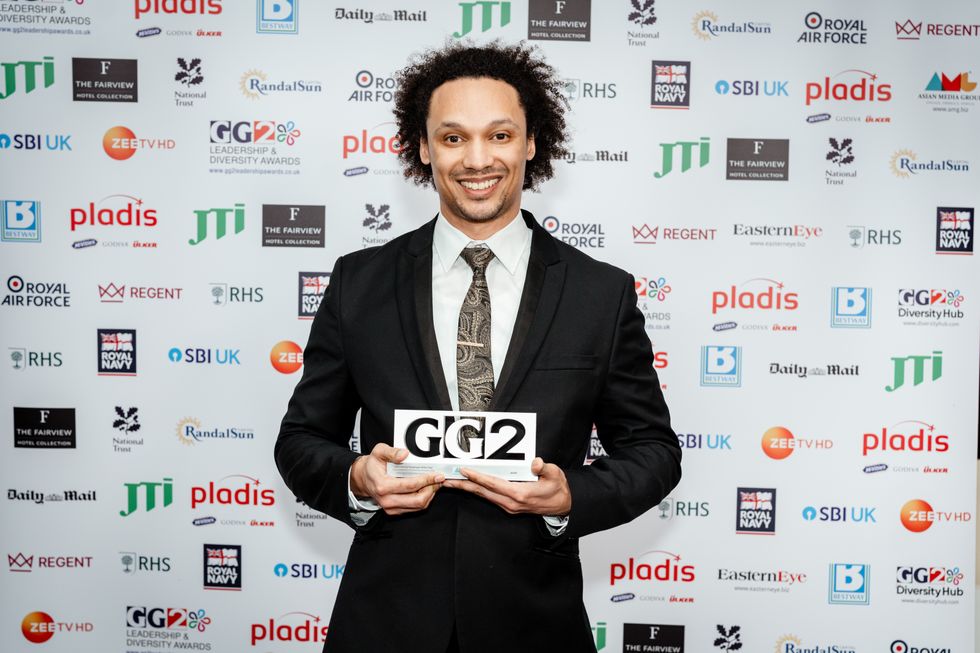
Diversity Champion of the Year: Tyreish SoftleighPalmer, business manager, Lloyds of London
Softleigh-Palmer leads the company’s Inclusive Futres initiative, which was launched in November 2023 to address Lloyd’s historical links to the transatlantic slave trade and its lasting impact.

Inclusive Futures aims to support black and ethnically diverse individuals at all career levels. It is backed by a coalition of Lloyd’s market firms and the goal is to create longterm, sustainable change in the industry and society.
Softleigh-Palmer manages the programme’s operations, relationships, governance, and projects. Lloyd’s is also a key partner in Race Equality Week, a UK-wide initiative supporting racial equality, education, and justice, observed from February 3 to February 9 every year.
Marketing Campaign of the Year: Manish Tiwari, founder and chairman, Here & Now 365
Founded by Tiwari, London-based Here & Now 365 specialises in multicultural marketing. It delivers campaigns for diverse audiences in the UK and abroad. Last year, it executed major campaigns, including Vatika’s #RootForMe for International Women’s Day, Remitly’s experiential activation at Westfield, and a TV commercial for Watchdog Locksmiths featuring Indian actor Nawazuddin Siddiqui.
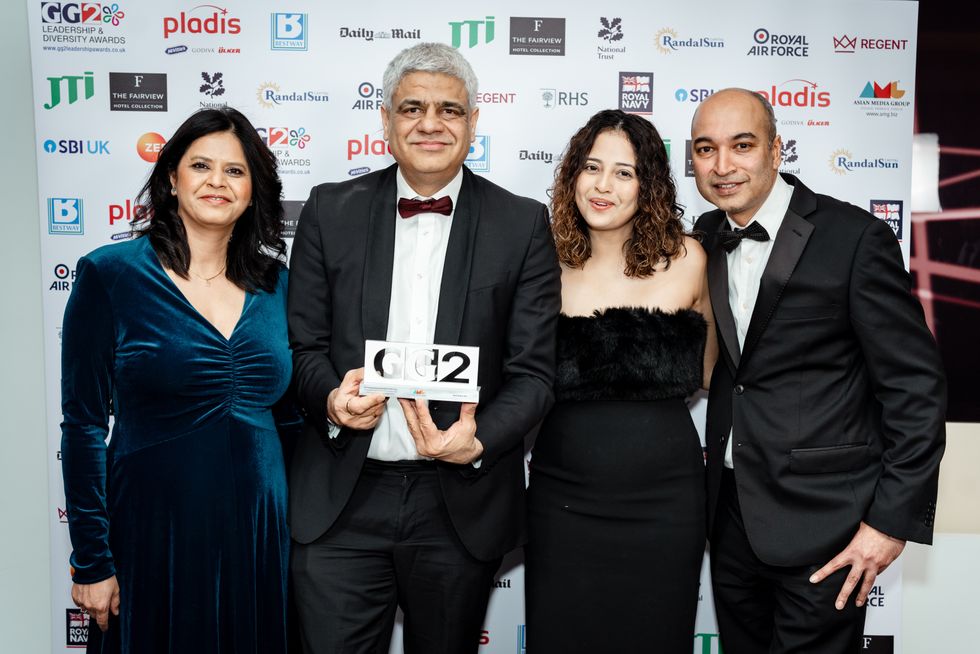
The agency has collaborated with the NHS, Lebara, Barclays, Sky UK, and India Tourism. It also engaged with community initiatives, including events at 10 Downing Street and Trafalgar Square.
Advertising Agency of the Year: Raoul Shah, CEO and founder, Exposure
Shah founded Exposure in 1993 to connect brands with culture. The agency has created campaigns for Levi’s, Nike, Dr Martens, and Lego.
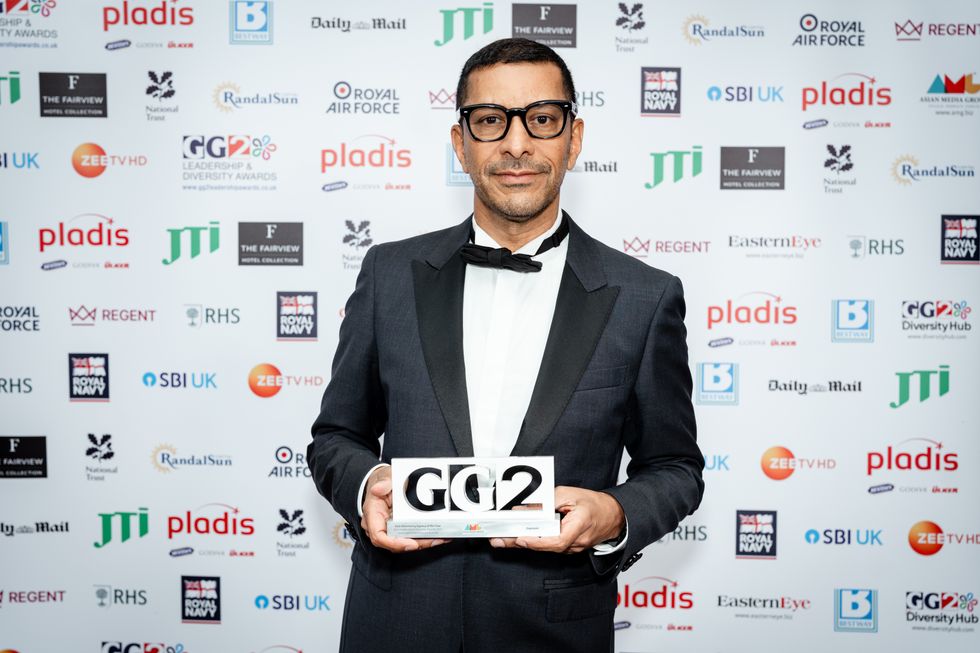
Exposure is known for championing diversity, supporting emerging talent, and bringing fresh perspectives to advertising. In 2024, it launched a technology and creative digital agency, followed by Exposure Earth in 2025, tackling environmental challenges through creativity.
The company has offices in London, Paris and New York, and with its sister agencies, generates £30 million annually.
Shah has served on key boards, including the British Council and London Design Festival.
Global Diversity Initiative of the Year: Louisa Minto, Neelam Katechia and Pippa Gillham-Lee for Curiosity Space at Mundipharma International Ltd
Curiosity Space is a global platform launched in March 2024 to support employees learning about diversity, equity, and inclusion (EDI). It was created by three members of the Mundipharma Inclusion Council – Louisa Minto, Neelam Katechia and Pippa Gillham-Lee. The project had no budget and was developed outside of daily work responsibilities.
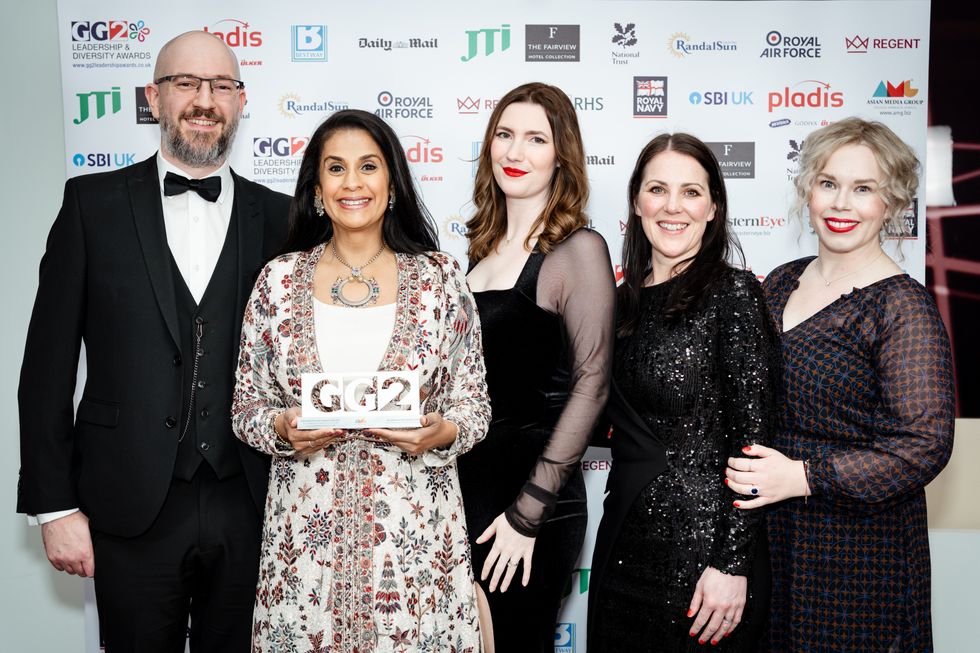
Curiosity Space focuses on four key themes – mental wellbeing, physical health, social identity, and sustainability. It provides employees with resources on mental health, gender identity, religion, parenting, and workplace inclusion.
The platform has more than 250 curated articles, documents, and podcasts.
Since its launch, Curiosity Space has received leadership endorsement, engaged employees globally, and contributed to a culture of inclusion.
Diversity Initiative of the Year: The Metropolitan Police Service Control and Command Division
The Service Control and Command Division of Metropolitan Police is the UK’s largest operational command unit and a leader in workplace inclusion.
Operating from three centres in London – Lambeth, Hendon, and Bow – it handles emergency and non-emergency communications for the Met, manages police resource deployment, and commands special operations.
As the most diverse command within the Met, it has established a dedicated equity, diversity and inclusion taskforce. It has coordinated programmes addressing unconscious bias, allyship, gender equality, and mental health awareness.
The division is primarily staffed by trained police staff rather than officers, bringing diverse perspectives to the service. Its commitment to diversity reflects broader efforts within the Met, which employs nearly 46,000 officers and staff.

